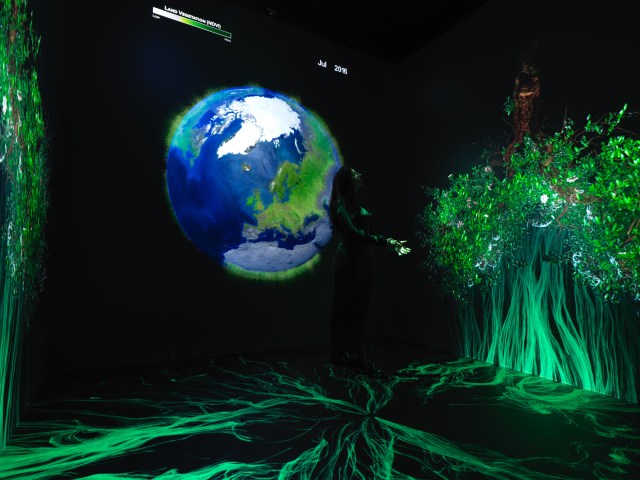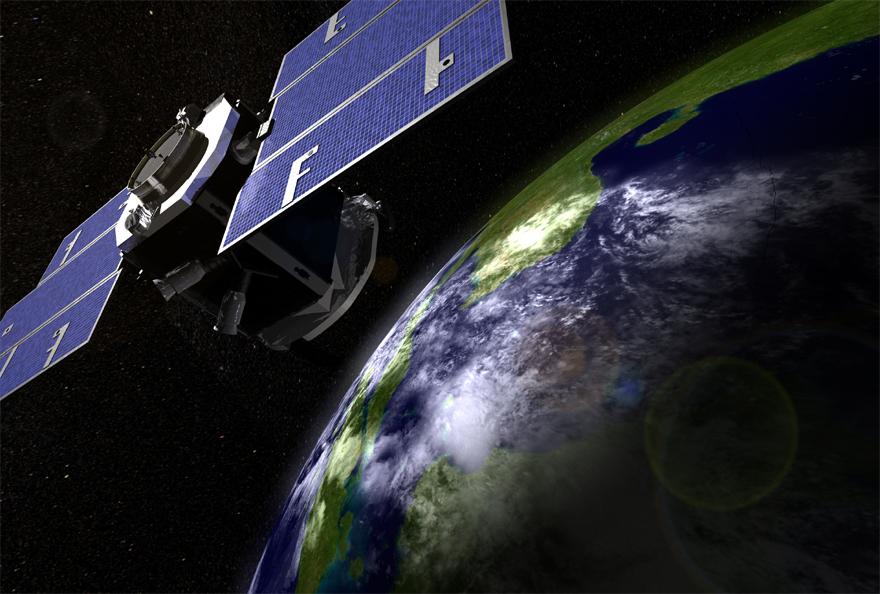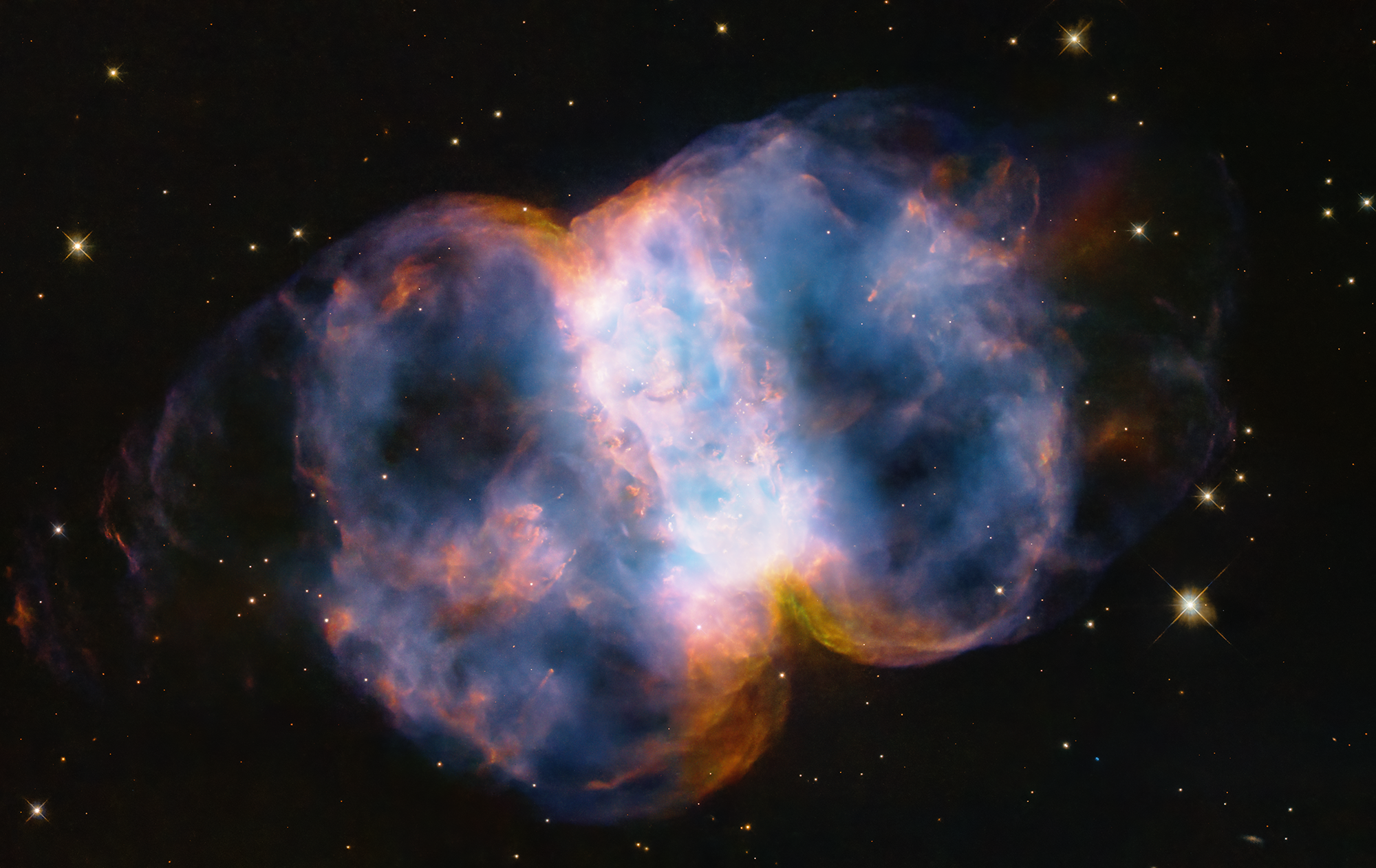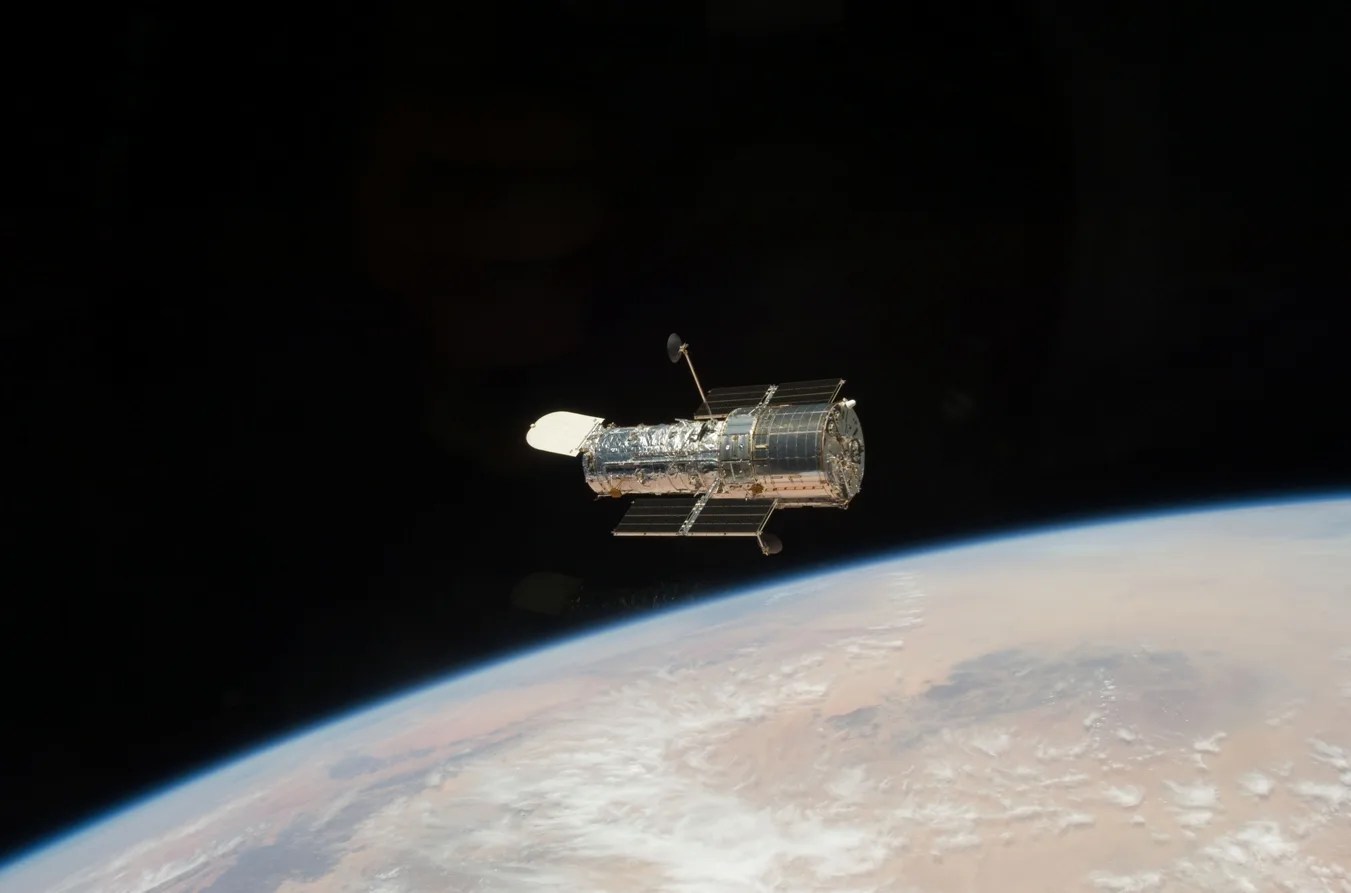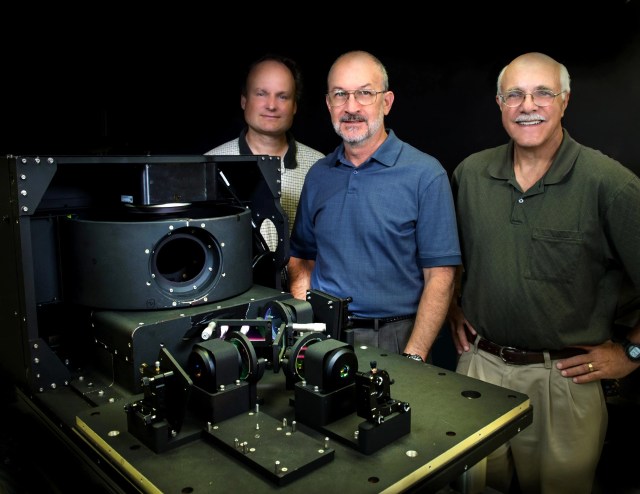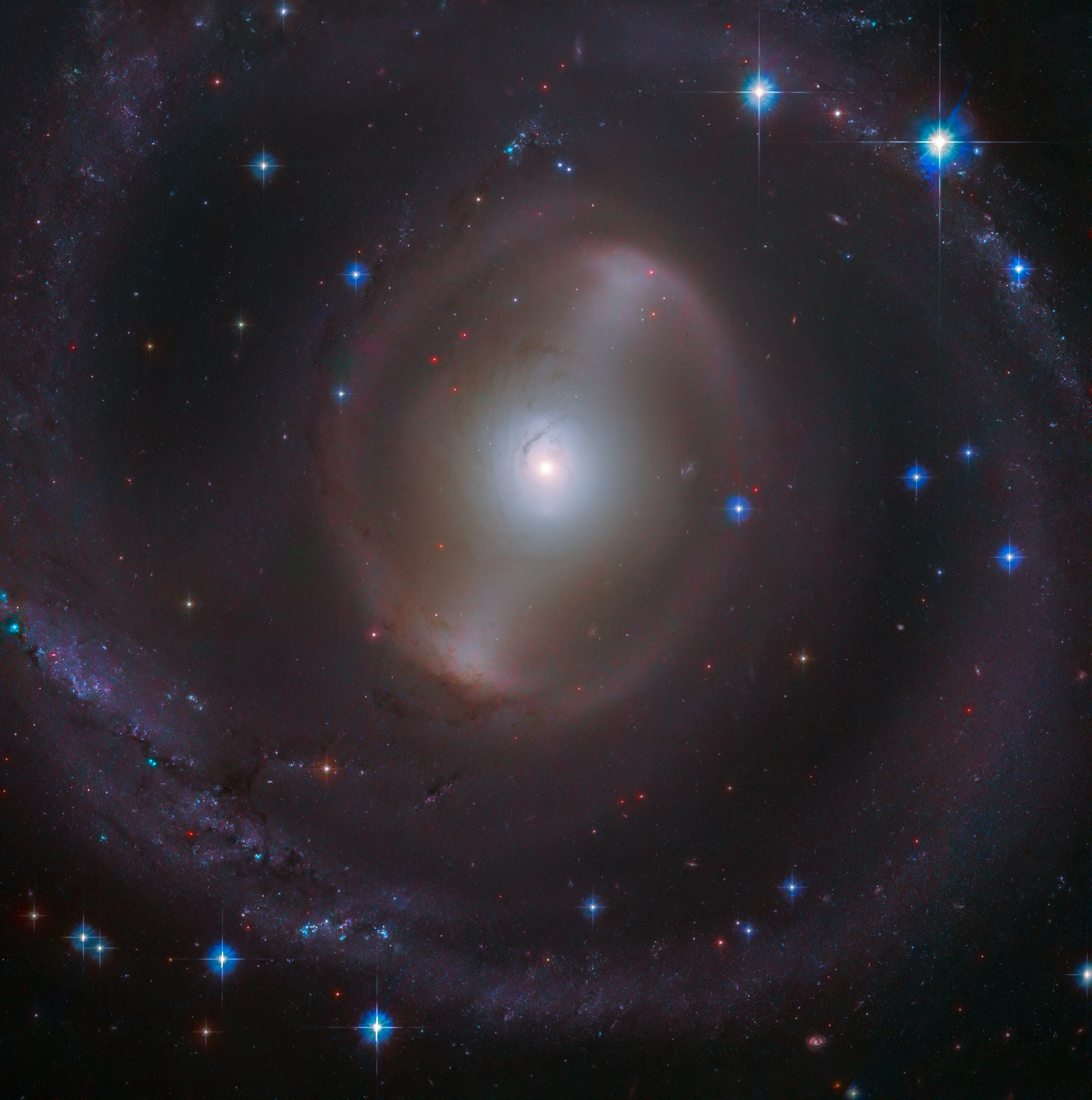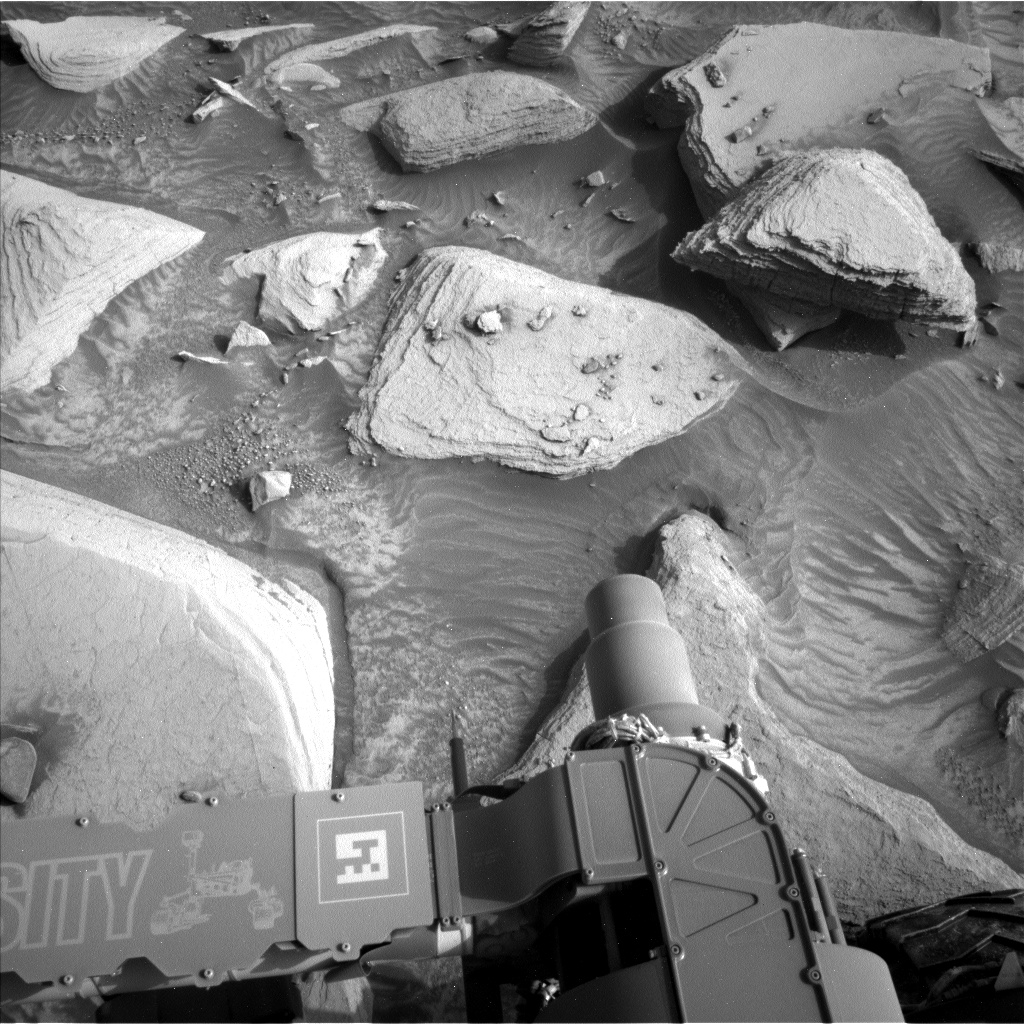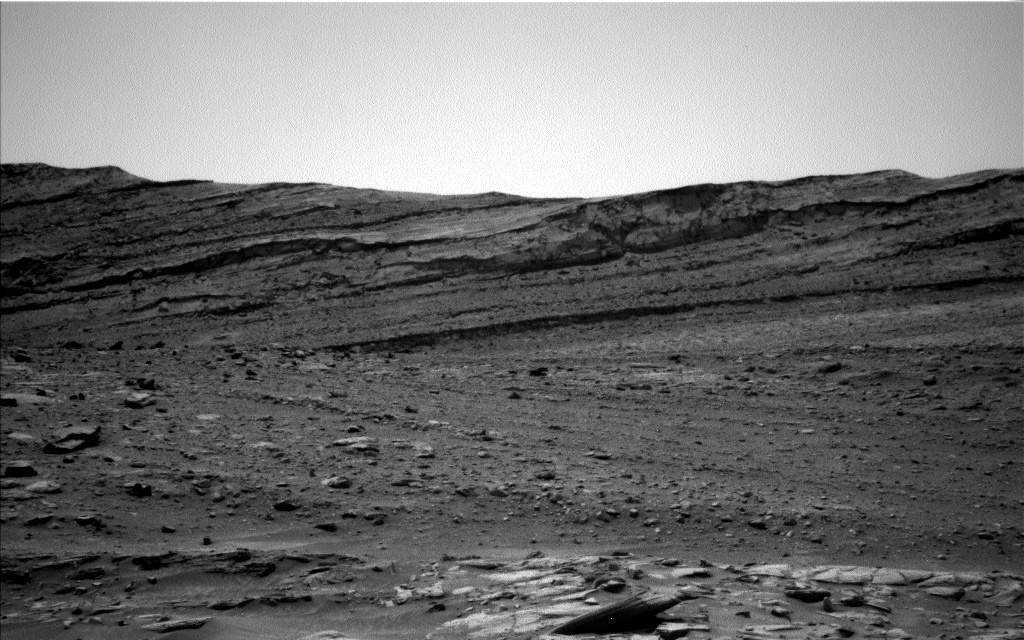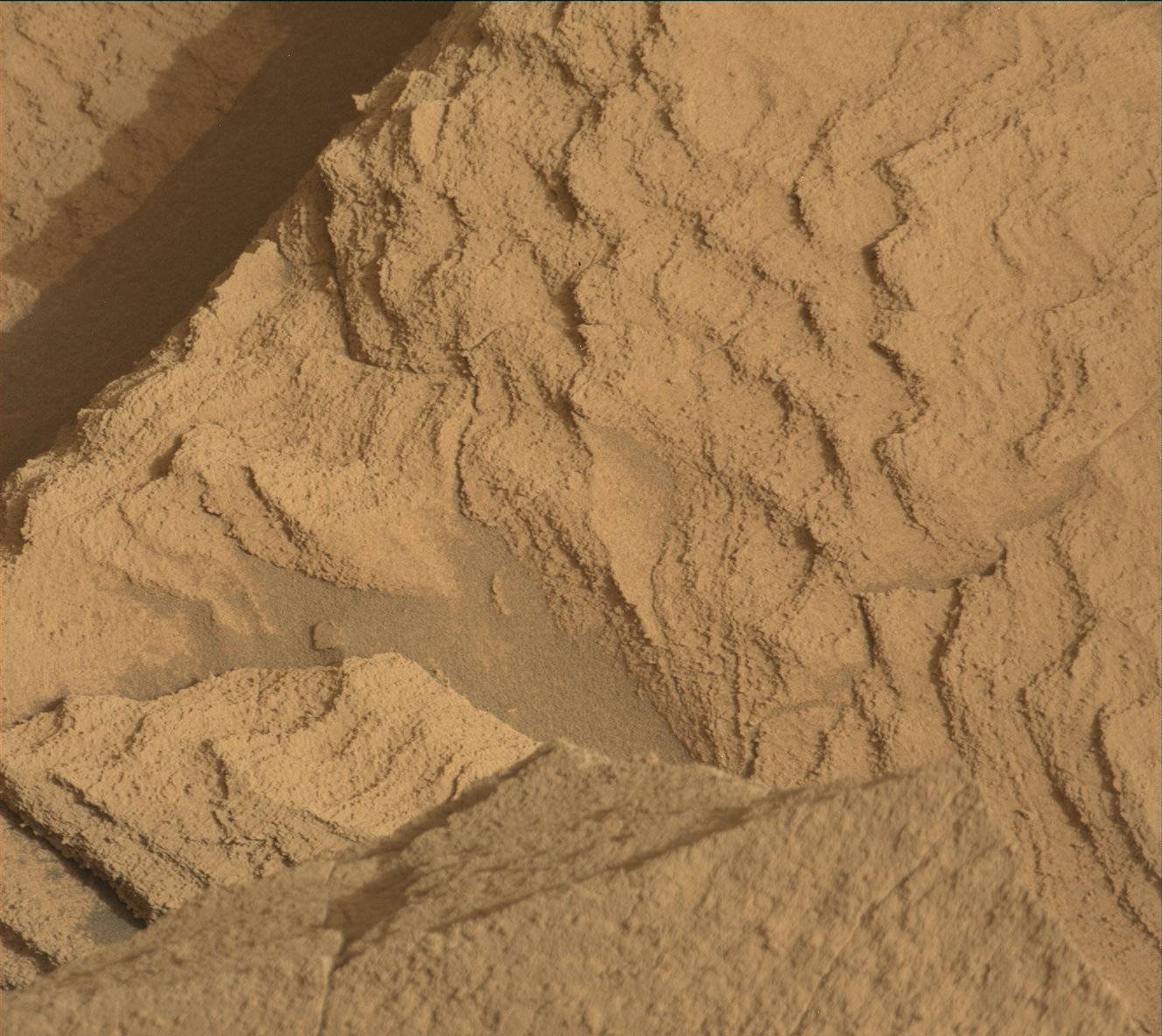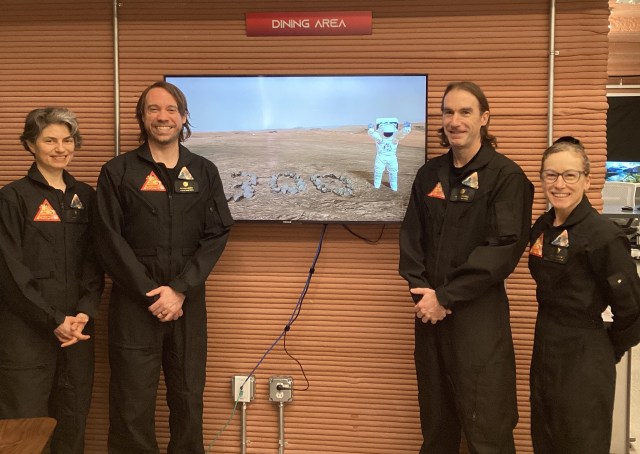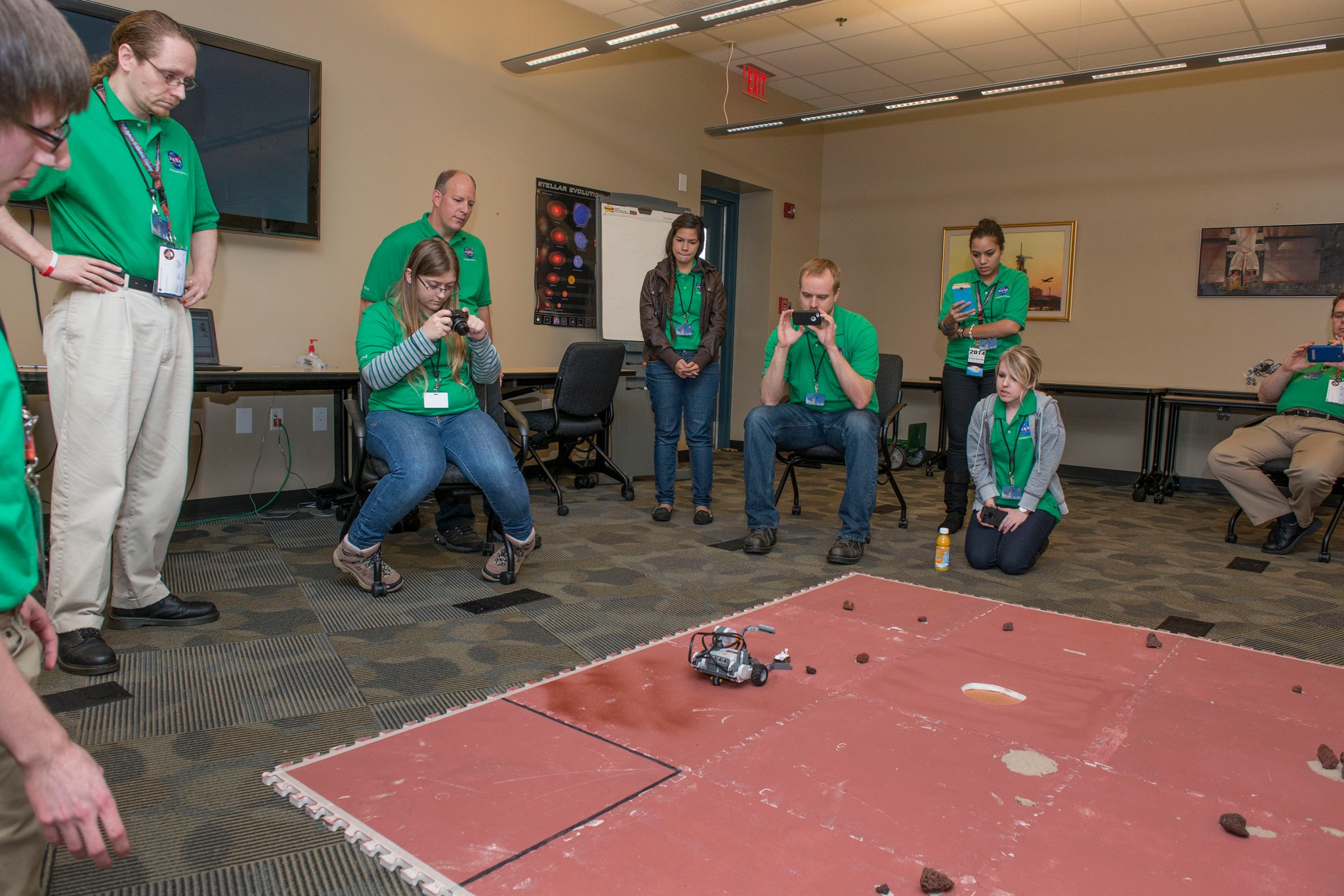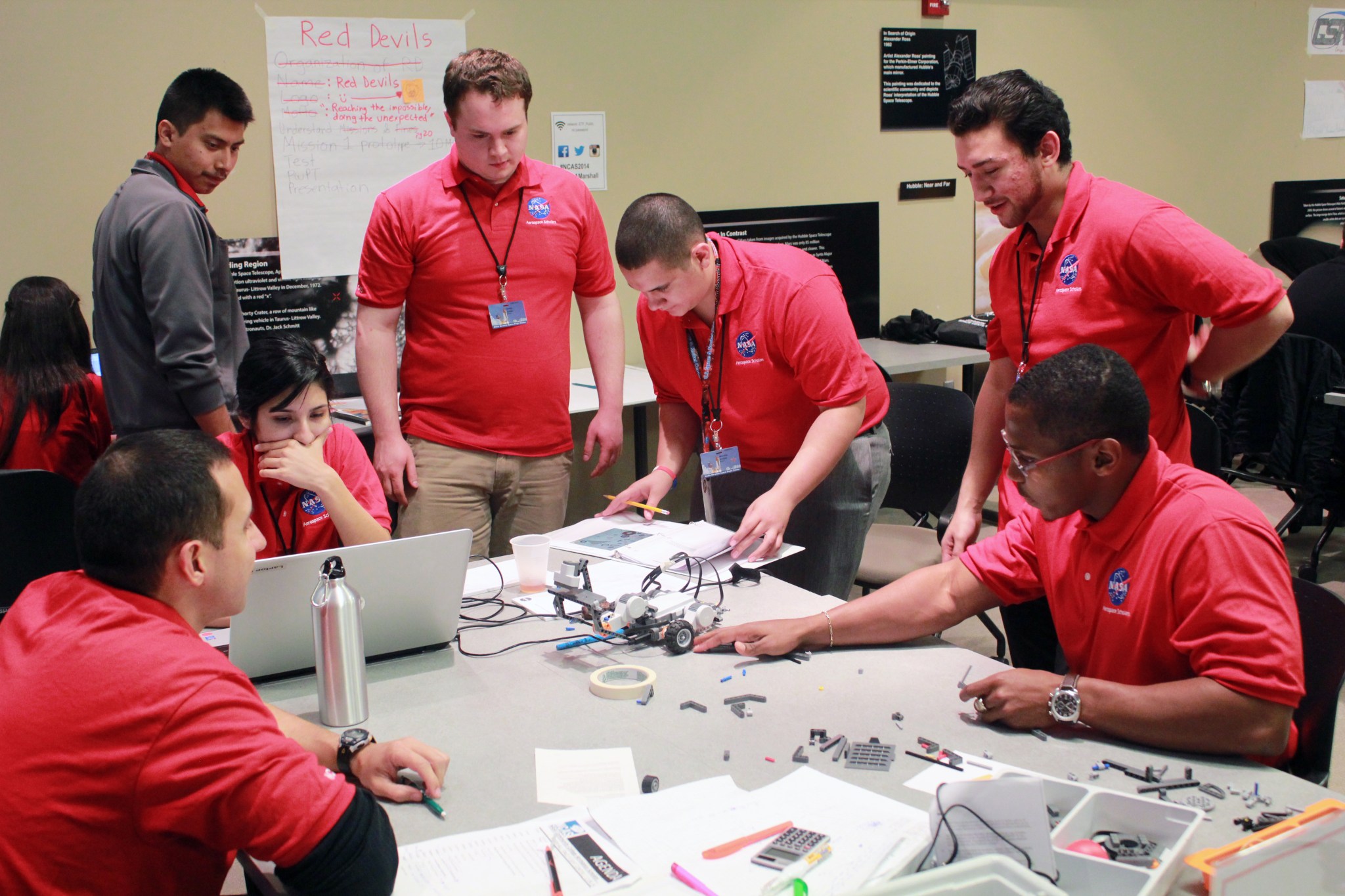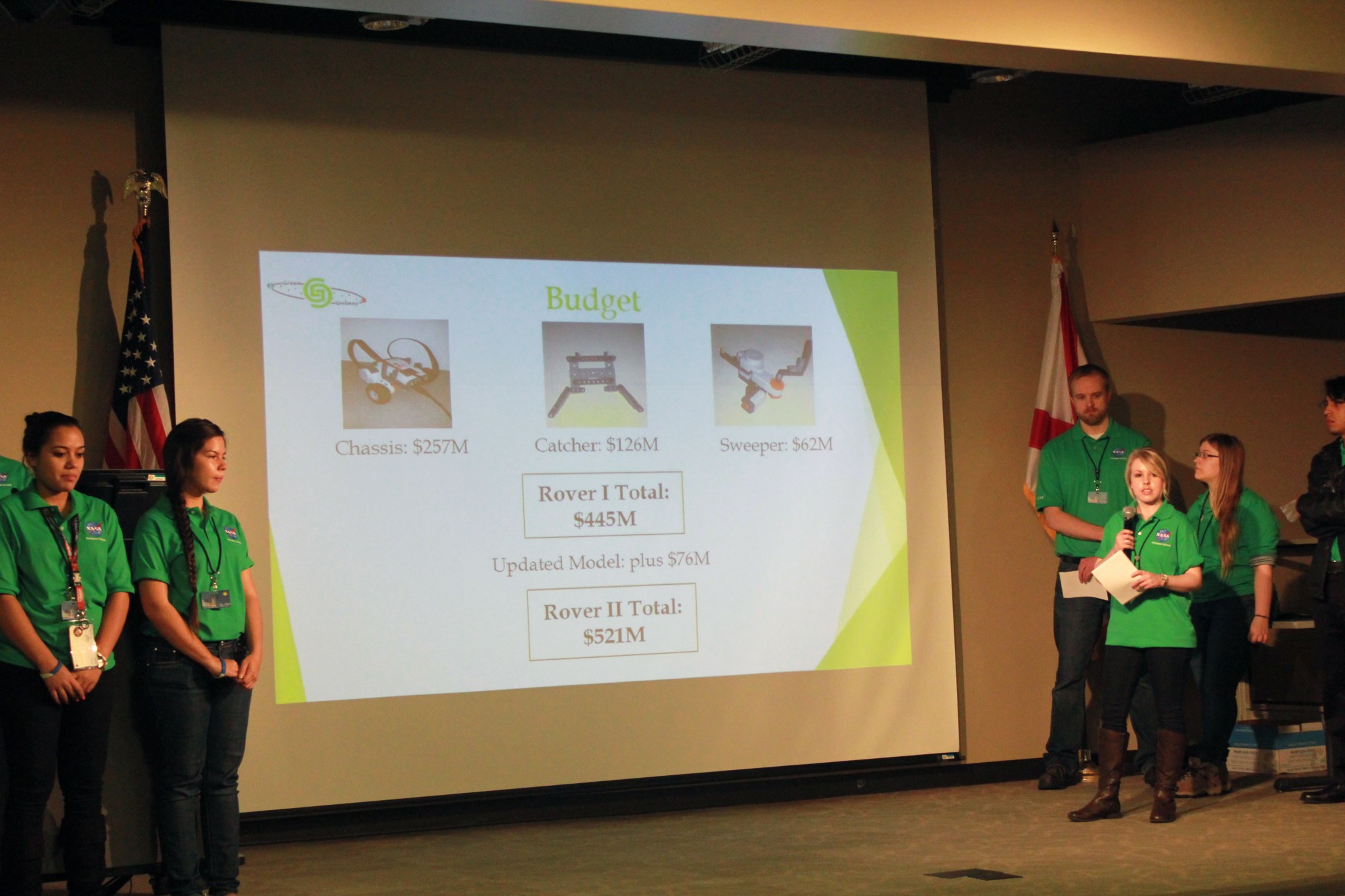Hard work still pays off. Just ask the thirty-five undergraduates who recently completed a Mars-themed workshop at NASA’s Marshall Space Flight Center in Huntsville, Alabama, Dec. 3-5.
The multi-day workshop was part of NASA Community College Aerospace Scholars (NCAS) — an online and onsite learning experience held at three NASA field centers this fall. This year, NCAS was designed to encourage students from minority-serving community and junior colleges to pursue careers in the aerospace workforce. Students were exposed to NASA-related content in science, technology, engineering and mathematics (STEM) while learning about future NASA missions.
“We worked in unfamiliar situations with tight deadlines, imitating the real-world expectations of a NASA project office,” said Greg Derk, an aerospace engineering sophomore attending Bellevue College, in Bellevue, Washington. “I benefited from this hands-on experience by learning about the engineering development cycle and working with a diversely skilled group of peers and mentors.”
Teams of students and NASA mentors planned and budgeted a simulated Mars mission, designed and constructed programmable rovers and created details for a fictional corporate infrastructure. They also delivered marketing presentations and demonstrated robotic functionality to a panel of NASA experts.
“This workshop provided an authentic, mission-planning experience, while increasing student awareness of NASA careers,” said Tammy Rowan, manager of the Academic Affairs Office at Marshall. “Students gained valuable insight and first-hand knowledge directly from our scientific and engineering workforce.”
Marshall speakers discussed their careers and provided information about NASA internships and the Space Launch System – NASA’s next generation deep space rocket. As a bonus, on Dec. 5, students viewed the launch and splashdown of Orion — NASA’s future crew vehicle for long-duration missions to Mars, asteroids and beyond.
While planning mock missions for astronauts, students discussed mitigating the inherent risks associated with long-term exposure to the harsh space environment, including intense radiation and weightlessness. “The workshop opened my eyes to many careers and changed my future goals,” said Jessica Pal, a pre-med student from Edmonds Community College, in Lynnwood, Washington. “I now plan to study areas related to astronaut health in NASA’s Human Research Program and I will definitely work for NASA.”
NASA’s Minority University Research and Education Project currently funds NCAS to ensure historically underserved and underrepresented students in STEM have access to NASA’s education opportunities.
Students were selected through a competitive process involving hundreds of their peers from minority-serving community colleges in 26 states. Once their selection was confirmed, students were assigned to a NASA field center, either NASA’s Johnson Space Center in Houston; the Jet Propulsion Laboratory in Pasadena, California; or the Marshall Space Flight Center. In the future, NASA plans to schedule workshops at NASA’s Stennis Space Center, near Bay St. Louis, Mississippi; and the Armstrong Flight Research Center on Edwards Air Force Base, California.
To participate in NCAS, students must have earned or be enrolled in nine hours of STEM coursework at a community college. They are then required to complete a five-week online course, highlighting NASA and Mars subject matter content. Those who successfully complete the course are eligible to participate in an on-site event at a NASA center.
The NCAS project office is located at Johnson. In addition to running the application process, online portion and student selection, Johnson provides oversight, management and support for those centers hosting onsite workshops. This oversight allows for seamless and effective collaboration between multiple NASA centers. Students chosen to attend workshops at other NASA centers undergo similar learning scenarios, with subtle changes that reflect the infrastructure at that specific center.
“NASA Community College Aerospace Scholars is growing fast,” said Alicia Baturoni, project coordinator in Johnson’s Education Office. “The collaboration between Johnson and Marshall extends NASA’s reach to community colleges throughout the nation and highlights each center’s unique facilities and aerospace workforce.”
For more information, please visit:
https://ncas.aerospacescholars.org/
For more information about NASA Education, please visit:

